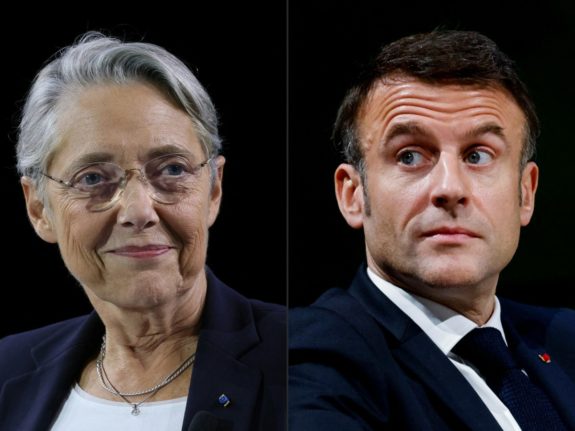As part of a long expected reshuffle Macron opted to replace his Prime Minister Elisabeth Borne, who had held the position for 20 months.
The favourites to become the next PM are 37-year-old Armed Forces minister Sebastien Lecornu, 43-year-old former agriculture minister Julien Denormandie and Education Minister Gabriel Attal, just 34, whose future has been the subject of intense speculation in recent hours.
A source close to the government told AFP that Attal was now the favourite to succeed Borne. If named, he would be France’s youngest ever and first openly gay prime minister.
Borne, aged 62, was only the second woman to lead a government in France. She had held talks with Macron at the Elysée on Monday afternoon, a sign that the reshuffle was imminent, and left about an hour later without making any announcement.
Macron paid tribute to Borne after accepting her resignation.
“Your work in serving the nation each day was exemplary,” he said.
Madame la Première ministre, chère @Elisabeth_Borne, votre travail au service de notre Nation a été chaque jour exemplaire. Vous avez mis en œuvre notre projet avec le courage, l’engagement et la détermination des femmes d’État. De tout cœur, merci. pic.twitter.com/G26ifKfKzj
— Emmanuel Macron (@EmmanuelMacron) January 8, 2024
In her resignation letter Borne said she had been “passionate about the mission” of being French prime minister and suggested her resignation was die to the “will” of the president to name a new PM.
Borne also said it was “vital more than ever to continue the reforms”.
READ MORE: What does a French Prime Minister actually do?
In France, prime ministers are not directly elected and are instead appointed by the president. As such, it is not uncommon for French presidents to replace their prime ministers from time-to-time, based on the political climate at hand.
Commentators in France had been speculating that there would be a cabinet reshuffle for several days, particularly following the passing of the immigration bill last month, which went through with many controversial changes imposed by the centre-right opposition.
The reshuffle is seen as essential to relaunch Macron’s centrist presidency for its final three years, and prevent him becoming a “lame duck” leader.
Francois Bayrou, leader of the centrist MoDem party, whose early endorsement of Macron was key to his initial 2017 election success, told BFM TV that a change in government makeup was “necessary”.
While Macron cannot run again in 2027, relaunching his government is seen as crucial to help prevent far-right figurehead Marine Le Pen becoming president.
European Parliament elections in June will also pose a major test, with Macron’s Renaissance party risking embarrassment at the hands of Le Pen’s National Rally (RN).
Despite his age, Attal is a more political figure than the technocratic Borne, and polls have shown him to be one of the most popular government ministers.
If named, he would go toe-to-toe ahead of the European elections with another rising star of French politics, the even younger Jordan Bardella, just 28, who is now party leader of the far-right RN.
Other key posts are also subject to uncertainty.
Interior Minister Gerald Darmanin, 41, a right-winger who spearheaded the immigration reform but burned his fingers when it was initially rejected by parliament, was seen as a candidate for a new job, possibly as foreign minister.
But recent reports indicate he may stay in his post.
The future of Foreign Minister Catherine Colonna has also been the subject of speculation.
Finance Minister Bruno Le Maire, the only senior minister to be in office since Macron’s election in 2017, is likely to remain in his post.
Macron likes “keeping all options open until the last moment”, a source close to the Elysee said.



 Please whitelist us to continue reading.
Please whitelist us to continue reading.
I would offer to re launch Macron myself. But he would not survive.